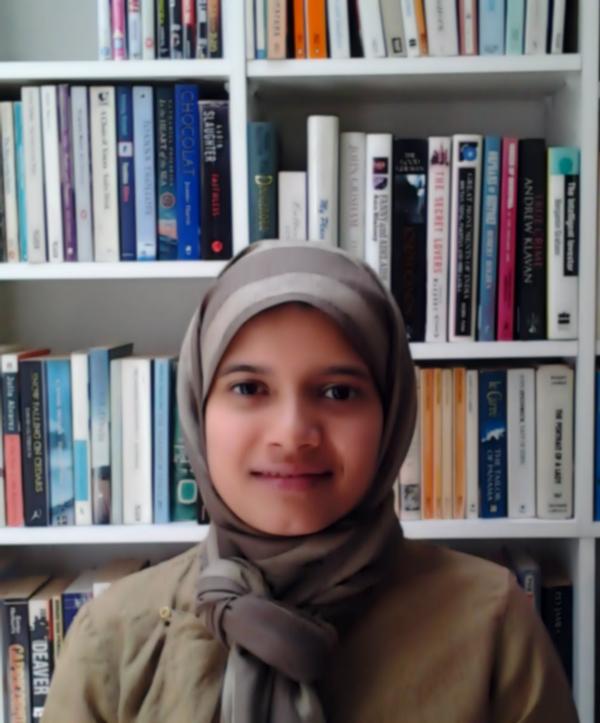
Farrah joined the Melbourne Law School in July 2012 and was made Associate Director of the India Program at the Asian Law Centre in 2013. Prior to this appointment, she was a Lecturer in Law at the Queen's College, University of Oxford. Farrah’s areas of interest are South Asian Law, Legal Theory, Law and Religion, Public Law and Family Law. Her educational history includes an LLB from the University of Delhi, a Bachelor of Civil Law, an M.Phil. in law and a DPhil in law from the University of Oxford.
Farrah is currently working on a project on the accommodation of religious norms in Indian family law. Her publications include: ‘The Coherence of the Doctrine of Legitimate Expectations’ Cambridge Law Journal (forthcoming, with Adam Perry); 'Expertise and the Duty to Give Reasons', Public Law (2012) 2: 221 (with Adam Perry); 'Religious Tribunals, Religious Freedom and Concern for Vulnerable Women', Child and Family Law Quarterly [2012] 363 (with Jane Norton); 'Religious Norms in Family Law: Implications for Group and Personal Autonomy' in John Eekelaar and Mavis Maclean (ed) Managing Family Justice in Diverse Societies (Hart 2013); 'How Religious Arbitration Could Enhance Personal Autonomy', Oxford Journal of Law and Religion (2012) 2:1 (with S. Luk); 'Personal Autonomy and the Option of Religious Law', International Journal of Law, Policy and the Family (2010) 24 (2): 222; 'The Value of Faith', Religion, State and Society (2010) 38 (2):169 and 'Religious Arbitration: A Study of Legal Safeguards', Arbitration (August 2011) (with S. Luk)
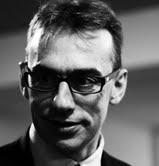
Marco Ventura is a professor of canon law and law and religion at the Faculty of Canon Law of Katholieke Universiteit Leuven. After a PhD at the University of Strasbourg he has visited the universities of London (UCL), Oxford, Strasbourg, Brussels (ULB), Cape Town and the Indian Law Institute in Delhi. He is a member of the European Consortium for Church and State Research and of the Centre Droit, Religion, Entreprise et Société at the University of Strasbourg and CNRS.
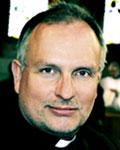
Gary is the Archbishop of Canterbury’s Representative to the EU and a Canon of the Pro-Cathedral of Holy Trinity, Brussels. He is also the Visiting Programme Director for faith, religion and the international public sphere at Wilton Park, an executive agency of the FCO.
Gary was ordained in 1988 and served in parish ministry before spending 10 years in theological education, first at Church Army’s college in Sheffield and then at York St John University where he was Head of Postgraduate Studies in Theology.
He is a member General Synod, a Fellow of the University of Gloucestershire and an Associate Research Fellow at the Catholic University of Leuven. He was previously a member of the Northern Regional Board of the Co-operative Group Ltd, the South Yorkshire Police Authority Standards Committee and Durham University’s External Examiner to the North East Ordination Course. Gary regularly contributes articles for academic journals and the Church press. He is currently collaborating on an edited volume entitled God and the EU.
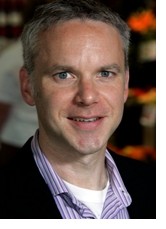
2012-13 Ann and Herbert W. Vaughan Visiting Fellow, is Associate Professor of Law at the University of Western Ontario. His research falls primarily in the intersections between constitutional law and moral and political philosophy. His articles have addressed the constitutionality of legal prohibitions of practices such as euthanasia, polygamous and same-sex marriage, and obscenity. He also publishes in the area of constitutional theory, co-editing The Challenge of Originalism: Theories of Constitutional Interpretation (Cambridge University Press). He is currently co-editing a volume of essays on proportionality in human rights adjudication. Professor Miller is Associate Counsel to Miller Thomson LLP in Toronto, practicing constitutional litigation. He has appeared before all levels of court in Ontario, as well as the Supreme Court of Canada. He was admitted to the bars of British Columbia (1993) and Ontario (2002) and is a member of the Law Society of Upper Canada. He holds a D.Phil. in law from Oxford University, an LL.M. from the University of Edinburgh, and an LL.B. and B.Com. from the University of British Columbia.
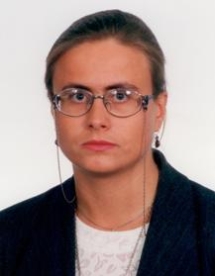
Merilin has taught international law and human rights (University of Tartu, University of Oxford). She has published several articles on various topics under the broader theme of law and religion in Estonia. She is currently in the process of developing these papers into a monograph which will be published by Kluwer Law International.
She has also written on general issues of international law and human rights. With a team of scholars at the University of Tartu they published a textbook on international law and a book on legal drafting and the rule of law. Merilin has edited a bench book for judges in Estonia. She has been advising Estonian government institutions on issues of law and religion and international law.
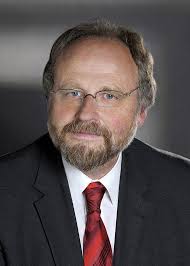
Heiner Bielefeldt (April 12, 1958) is a German philosopher, historian and Catholic theologian who serves an United Nations Special Rapporteur for Freedom of Religion or Belief. Holding both a PhD and a post-doctoral habilitation degree in philosophy, Professor Bielefeldt teaches in the areas of political science, philosophy, law and history. From 2003-2009 he served as Director of the German Institute for Human Rights. He has taught at the University of Heidelberg and the University of Toronto, and at the time of his UN appointment on 18 June, 2010, he was professor in the newly created Chair of Human Rights and Human Rights Policy at the University of Erlangen.
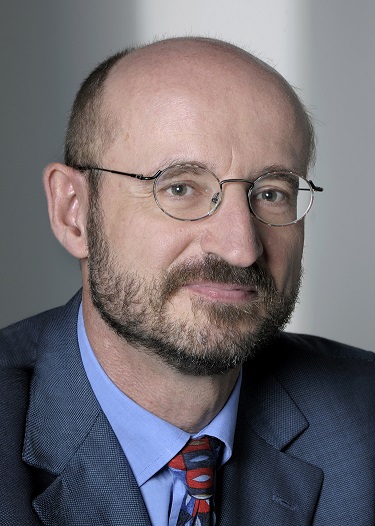
Prof. Dr. Mathias Rohe, studies in Law and Islamic Sciences in Tuebingen and Damascus, PhD and habilitation in law, full professor for Civil Law, Private International Law and Comparative Law at the University of Erlangen-Nuremberg/Germany, founding director of the Erlangen Centre for Islam and the Law in Europe at this university, member of the Board of the German Society for Arabic and Islamic Law, member of the first and second German Islam Conference, working group leader of the Austrian Islam forum, Judge at the Court of Appeals of Nuremberg (retired); numerous publications on Islam and European legal orders and on Islamic law.
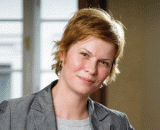
Renáta Uitz is Head of the Department of Legal Studies, and Chair of the Comparative Constitutional Law program. Her research and teaching cover subjects in comparative constitutional law in Europe and North America, transitional justice and human rights protection, with special emphasis on religious liberty and sexuality. She is the author of "Constitutions, Courts and History" (2004) and "Freedom of Religion in European Constitutional and International Case Law" (2007) and the editor of “The Constitution in Private Relations: Expanding Constitutionalism” (with Andras Sajo, 2005), “Constitutional Topography: Values and Constitutions” (with Andras Sajo, 2010), and most recently of” Arguments that Work: Strategies, Contexts and Limits in Constitutional Litigation” (2013).
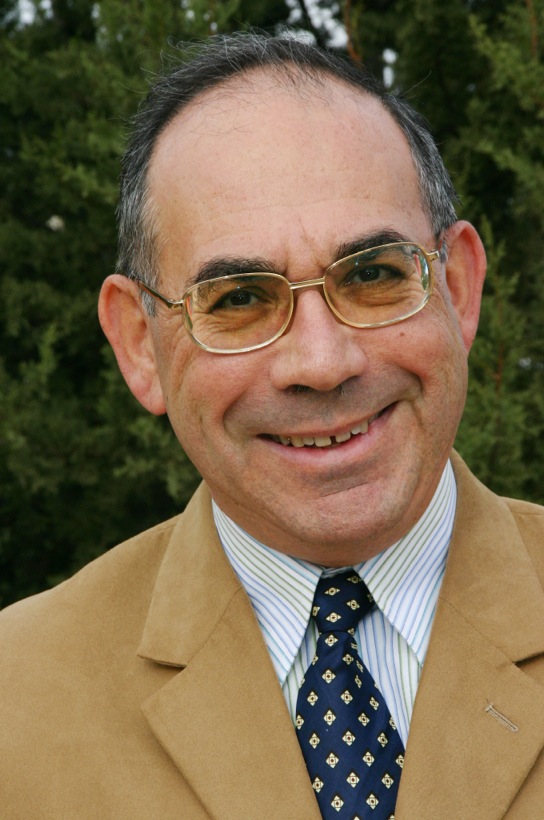
Born in Edinburgh in 1947, Raymond Cohen grew up in Manchester. He studied at Oxford and Lancaster Universities. In 1970 he arrived at the Hebrew University of Jerusalem, later becoming Chaim Weizmann Professor of International Relations. He served as Chair of the Department of International Relations and Director of the Leonard Davis Institute for International Relations. Inter alia he also taught at Georgetown University and held research fellowships at the Unites States Institute of Peace and the Watson Institute of Brown University. Retiring from Jerusalem in 2008, he spent 2008-10 as Corcoran Visiting Professor at the Center for Christian-Jewish Learning in Boston College’s Department of Theology. He was Patinkin Visiting Professor in Modern Jewish Studies at the University of Chicago for 2012.
Raymond Cohen's special interests are international diplomacy, communication across cultures, and Christian-Jewish relations. He has published eight books and numerous articles on those subjects, including The Art of Diplomatic Signaling (Longman), Culture and Conflict in Egyptian-Israeli Relations (Indiana U.P.), and Negotiating Across Cultures (United States Institute of Peace Press). He has also explored in two books, edited with Raymond Westbrook, the diplomacy of the ancient Near East: Amarna Diplomacy: the Beginnings of International Relations (Johns Hopkins U.P.) and Isaiah's Vision of Peace in Biblical and Modern International Relations (Palgrave Macmillan).
His latest book, published in 2008 is entitled Saving the Holy Sepulchre (Oxford U.P.). Raymond Cohen is now working on a study of the changing relationship between the Catholic Church and the Jewish people with special reference to relations between the Holy See and Israel.
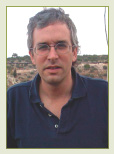
Leonard Hammer lectures in international law and international human rights at Hebrew University in Jerusalem and the University of Arizona. He has conducted joint research into the legal, social, and political aspects of holy places together with Professor Marshal Breger from the Columbus School of Law, Catholic University of America.
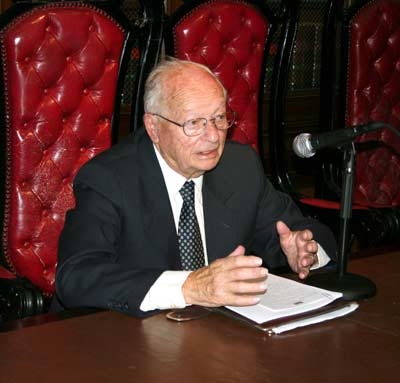
Born in Poland and educated in Argentina, Natan Lerner obtained his law degree in 1950 and his doctorate in Law and Social Sciences in 1958, both from Buenos Aires University. He was a practicing lawyer in Buenos Aires until 1963, when he settled in New York and worked as one of the representatives of the World Jewish Congress at the United Nations. In Israel since 1966, he was director of the Israeli Branch of the World Jewish Congress until 1983. From 1984 to 1989 was director of the International Center for the University Teaching of Jewish Civilization. Simultaneously, he taught International Law and Human Rights at the University level. Since 1989 his main activity is university teaching. Since his retirement from Tel Aviv University, after more than 20 years of teaching, Professor Lerner teaches at the Interdisciplinary Center Herzliya. His main course is International Law and he also conducts seminaries on, among other subjects, State and Religion, Racial Discrimination, Minorities and Genocide. He lectures frequently abroad, and attended as an invited expert seminars on Incitement to Racial and Religious Hatred, the most recent of them in July 2011 in Bangkok, organized by the Office of the High Commissioner on Human Rights of the United Nations.
Lerner is the author of the following books in English:
Religion, Secular Beliefs and Human Rights (Leiden, 2006) 2nd. ed., 2012; Religion, Beliefs and International Human Rights (New York, 2000); Group Rights and Discrimination in International Law (The Hague, 2003); The UN Convention on the Elimination of All Forms of Racial Discrimination (Alphen an den Rijn, 1980); The Crime of Incitement to Group Hatred (New York, 1965).
He also published several books in Spanish, the most recent one being De lo Parroquial y lo Universal (Tel Aviv, 2010). His books on Racial Discrimination and on Religion were translated into Japanese, and the one on Group Rights into Spanish. He is the author of many articles in Spanish, English and Hebrew, published in books and journals of Israel, the USA, Spain, Argentina and other countries.
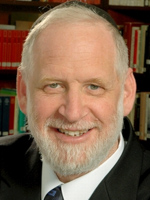
Rabbi Professor Naftali Rothenberg is a senior research fellow at the Van Leer Jerusalem Institute (since 1994), where he is Jewish Culture and Identity chair and editor of Identities, Journal for Jewish Culture & Identity. He also serves as the Rabbi and spiritual leader of Har Adar, a Jerusalem suburb town, where he resides with his family. His main fields of research are: The wisdom of love; Political Philosophy; Philosophy of Halakha; Democratic Education.
Rabbi Rothenberg has published numerous articles and 12 books. His most recent books are: Wisdom by the Week - the Weekly Torah Portion as an Inspiration for Thought and Creativity (Yeshiva University Press, New York 2012); Values and Citizens - Civic Democratic Education (The Van Leer Jerusalem Institute, 2011); Rabbi in the New World: The Influence of Rabbi J. B. Soloveitchik on Culture, Education and Jewish Thought (with Avinoam Rosenak) (Magnes Hebrew University Press, Jerusalem 2011); The Wisdom of Love-Man, Woman & God in Jewish Canonical Literature (Academic Studies Press, Boston 2009).
Naftali Rothenberg is the 2011 laureate of the Liebhaber Prize for the encouragement of religious tolerance in Israel.
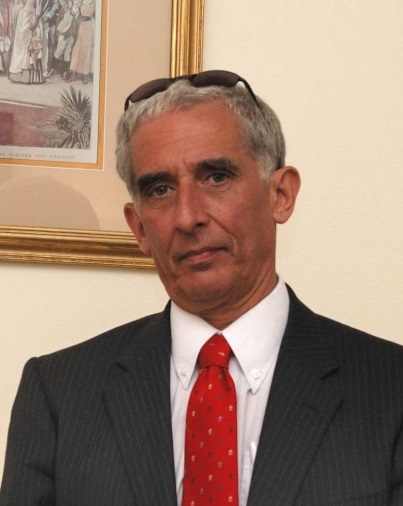
Daniel Seidemann is an Israeli attorney, and an expert in Israeli-Palestinian in Jerusalem. Mr. Seidemann has argued more than twenty Jerusalem-related cases before the Israeli Supreme Court, and is frequently consulted by senior echelons in Israel/Palestine and the international community in matters pertaining to Jerusalem. In 2010, he was awarded an honorary title of Member of the Order of the British Empire in recognition of his work in Jerusalem.
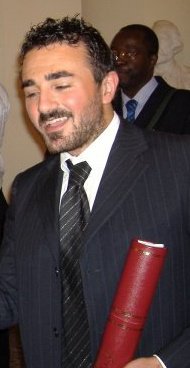
Pasquale Annicchino is Research Fellow at the Robert Schuman Centre for Advanced Studies, he is also a member of the EUI Ethics Committee.
He received his Ph.D. in Law from the University of Siena where he also graduated in law summa cum laude in December 2006. In 2004 he studied as an Erasmus student at the School of Law of Charles IV University in Prague (Czech Republic). From August 2004 to September 2006 he studied at the European Academy of Legal Theory in Brussels (Belgium) where he obtained a double degree (LL.M./D.E.A.) in October 2006. From January to June 2007 he was Visiting Scholar at the Centre for Law and Religion of the Emory University Law School in Atlanta (United States). In 2009 he specialized (LL.M.) in European Public Law at University College London (United Kingdom) where he also served as Editor in Chief of the UCL Human Rights Review.
Pasquale is also a fellow in Constitutional Law and Comparative Constitutional Law at the Department of Political Science of the University of Salerno. He serves as book review editor for Religion and Human Rights: an International Journal and is a member of the editorial board of Quaderni di Diritto e Politica Ecclesiastica published by Il Mulino. His main interests include the followings: Legal Theory, Law and Religion, EU Law, Religion and Politics.
Rinaldo Cristofori. University of Milan graduate in Canon Law with a thesis on the Italian Inquisition. In 2006 he graduated in Siena at an MA in human rights and humanitarian action. In 2011 he was awarded his PhD in law at the university of Milan with a dissertation on transitional justice and religion. He currently works on transitional justice, law and religion, and the role of forgiveness in transitional countries.

Rev. Dr. Robert Ombres has previously presided as Procurator General of the Dominican Order. His interests include roman Catholic canon law, comparative canon law, and church-state relations. Some of his latest publications include 'The Causes of Saints: A Papal Pronouncement and New Measures'; (2007) 9(3) Ecclesiastical Law Journal 301-304, 'The Case of Connelly v Connelly (1851): The Trials of a Saint?' Ecclesiastical Law Journal (2005) 21-31, and 'Authority, ARCIC and Roman Catholic Canon Law' in Conn, Doe, Fox (eds), Initiation, Membership and Authority in Anglican & Roman Catholic Canon Law (Cardiff 2005) 229-233.
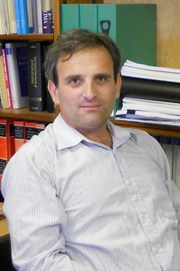
Dr. Joseph E. David has held many positions which include a Sub-Faculty Associate Member, Senior Lecturer at Sapir Academic College and the Hebrew University of Jerusalem, and a Research Fellow at Van Leer Jerusalem Institute. His interests are Law and Religion, Comparative Jurisprudence, Legal Theory and Legal History. Dr. David is currently working on perceptions of kinship and incest in medieval thought (mainly within the Karaite and the Eastern Churches legal writings). Some of his publications include "The State Rabbinate: Election, Separation and Freedom of Expression (Jerusalem: Israel Democracy Institute Press, 2000). (Hebrew)","The Family and the Political: The Political Meaning of the Family in a Liberal Society (Jerusalem: Israel Democracy Institute, 2012). (Hebrew)", "Toleration within Judaism", co-authors: Martin Goodman, Corinna Kaiser and Simon Levis-Sullam (Oxford: The Littman Library of Jewish Civilization, 2013)(English)and "Between Logos and Nomos – Law and Theology in Medieval Jewish Thought" (Tübingen: Mohr Siebeck verlag), forthcoming. (English).
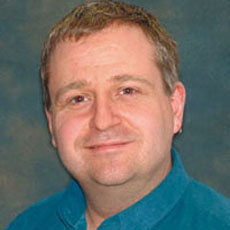
Professor Peter Edge is a member of the Faculty of humanities and Social Sciences, Oxford Brookes University. His principal interests are the interaction of law and religion in contemporary plural jurisdictions, with a particular emphasis on the law of the United Kingdom, the European Union, and the United States. The issues span a wide range of legal topics, from employment law to the sentencing of religious offenders; from the establishment of the Church of England to food and grooming requirements. One of Professor Edge’s projects, funded by the Economic and Social Research Council, investigated religious representation in the Manx legislature, the Tynwald (the legislature of the Isle of Man). This contributed to the political debate on the future of the Lord Bishop of Sodor and Man, as well as to the academic study of religious representation globally.
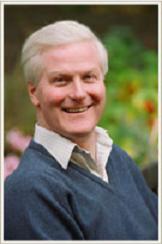
Robin Griffith-Jones was born in London, England, and served as chaplain and taught New Testament for several years at Lincoln College, Oxford University. He was named Master of the Temple Church in London, one of the most important and influential positions in the Anglican Church. His books include The Four Witnesses, The Gospel According to Paul Harper, The Da Vinci Code and the Secrets of the Temple, and Mary Magdalene.
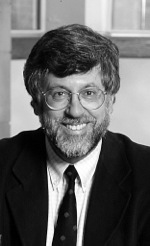
Mark Weston Janis is William F. Starr Professor of Law at the University of Connecticut School of Law. Born in Chicago, he grew up in Illinois and Michigan, and graduated from Princeton, from Oxford where he was a Rhodes scholar, and from Harvard Law School. He served as a U.S. naval officer and practiced corporate and financial law with Sullivan & Cromwell in New York and Paris. He is a member of the Faculty of Law of the University of Oxford where he was Reader in Law, Fellow of Exeter College, and Director of Graduate Legal Study, and is now Visiting Fellow. He has also taught as a visiting professor at Cornell, UCLA, Paris I, Aix-Marseilles, Tilburg, Muenster, and, as a Fulbright Scholar, at the Riga Graduate School of Law. He teaches Public International Law, European Human Rights Law, Constitutional Law, and Conflict of Laws. He is the author of three widely-used books: International Law (Aspen 6th edition 2012), Cases and Commentary on International Law with John Noyes (West 4th edition 2011), and European Human Rights Law with Richard Kay and Anthony Bradley (Oxford 3rd edition 2008). He also is the author of The American Tradition of International Law: Great Expectations (Oxford 2004), America and the Law of Nations 1776-1939 (Oxford 2010), and of more than 60 articles concerning public and private international law. He is the co-editor of Religion and International Law (Martinus Nijhoff 2nd edition 2004) and International Law Stories (Foundation 2007). He has served from time to time as an officer of several organizations for the promotion of international law including the American Bar Association, the American Society of International Law, the American Association of Law Schools, and the International Law Association, and is a member of the Council on Foreign Relations in New York and of the American Law Institute in Philadelphia. He also serves on several editorial advisory boards including those for the Netherlands International Law Review, the Oxford Journal of Law and Religion, and the International Community Law Review.
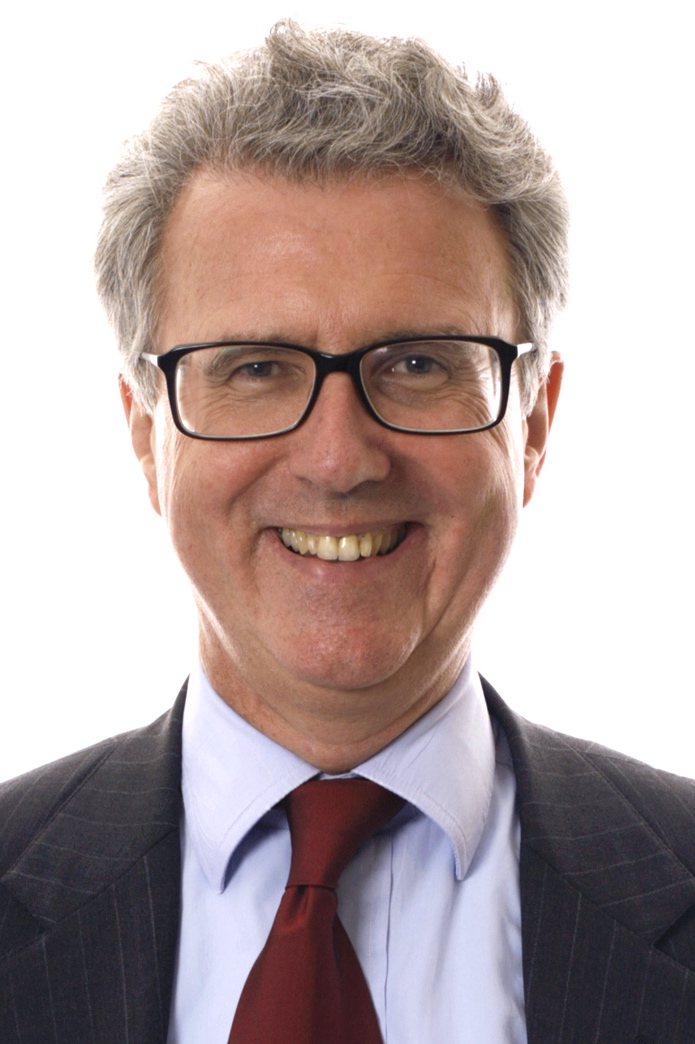
Christopher McCrudden is Professor of Human Rights and Equality Law at Queen’s University Belfast, William W. Cook Global Law Professor at the University of Michigan Law School, and currently Visiting Professor at the University of Oxford. He is a graduate of Queen’s University Belfast (1974). In 1974 he was awarded a Harkness Fellowship and spent two years at Yale Law School (1974—76), and then at Oxford University as a doctoral student. He was elected as Fellow and Tutor in Law at Lincoln College, and CUF Lecturer in the Oxford Law Faculty in 1980, and became Professor of Human Rights Law at Oxford in 1998. He is a practicing barrister at the English Bar and is a Non-Resident Tenant at Blackstone Chambers. He is the author of Courts and Consociations: Human Rights versus Power-Sharing (OUP, 2013, with Brendan O’Leary), and Buying Social Justice (Oxford University Press, 2007), for which he was awarded a Certificate of Merit by the American Society of International Law in 2008. In 2013, the British Academy will publish, under his editorial direction, of a set of papers on human dignity by historians, philosophers, theologians, and lawyers: Understanding Human Dignity (British Academy/OUP, in press). In 2006, Queen’s University, Belfast, awarded him an honorary LL.D. He was elected a Fellow of the British Academy in 2008. In 2011, he was awarded a three-year Leverhulme Major Research Fellowship. In 2013-14, he will be Fellow at the Institute for the Advanced Study of Law and Justice at New York University.
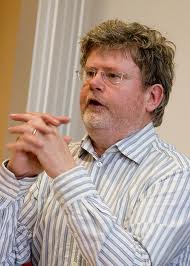
John joined the Department of Theology in September 2004. He has previously taught at the Universities of Lancaster, Cambridge and Virginia. He is the author of several books of which the most well-known is Theology and Social Theory and the most recent Being Reconciled: Ontology and Pardon. He is one of the editors of the Radical Orthodoxy collection of essays which occasioned much debate. In general he has endeavoured in his work to resist the idea that secular norms of understanding should set the agenda for theology and has tried to promote the sense that Christianity offers a rich and viable account of the whole of reality. At the same time he tends to insist that Christianity is itself eclectic and fuses many traditions - particularly that of biblical narrative with that of Greek philosophy. In style his theology is eclectic, interdisciplinary and essayistic - though it aims to be systematic in a somewhat ad hoc fashion. So far he has produced two books in the areas of Christian doctrine and ethics - though both have a strong philosophical component. In addition he has sustained interests in developing a political and social theology - critical of the liberationist current as insufficiently theological, while retaining a left-leaning perspective. Currently he is pursuing a long-term project concerning the topic of 'gift' which involves all the above-mentioned concerns. In the long-term he hopes to develop a fully-fledged 'Trinitarian ontology'.
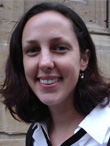
Dr. Jane Norton is a teaching fellow in constitutional and administrative law and the law of trusts. Her research is focused on civil liberties (particularly religious freedom and freedom of expression), cultural minority rights, gender and the law, discrimination law, and normative legal philosophy. She is also interested in the regulation of charitable trusts.
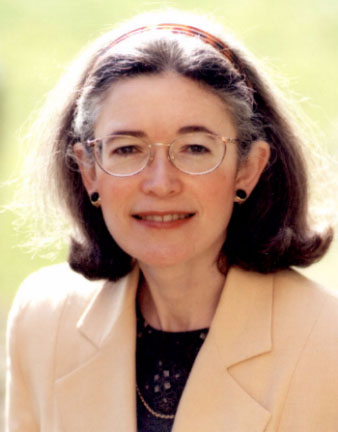
Joan Lockwood O'Donovan is Honorary Fellow, School of Divinity, New College, University of Edinburgh and received her Ph.D. in theology from the University of St. Michael's College in the University of Toronto. She has written extensively in the area of the history of Christian political thought.
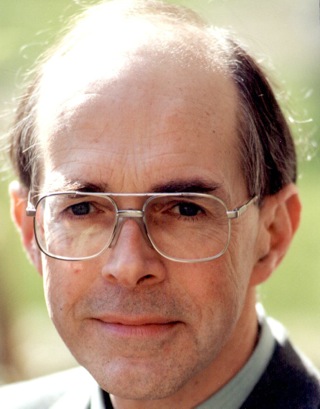
Oliver O’Donovan, born in 1945 in London, was Regius Professor of Moral & Pastoral Theology and Canon of Christ Church at the University of Oxford from 1982 until 2006, before which he taught at Wycliffe Hall, Oxford (1972-7) and at Wycliffe College, Toronto (1977-82). He is a past President of the Society for the Study of Christian Ethics. Ordained as a priest of the Church of England, he has been an active participant in ecumenical dialogue and has served on the General Synod. He has been a Fellow of the British Academy since 2000. He has held distinguished visiting lectureships in the Universities of Durham and Cambridge, the Gregorian University in Rome, McMaster University in Hamilton, Ontario, St. Patricks College, Maynooth, St. Johns College, Hong Kong, and Fuller Theological Seminary, Pasadena, California.
Professor O'Donovan is the author of The Problem of Self-Love in Saint Augustine (Yale 1979), Begotten or Made? (Oxford University Press, 1984), Resurrection and Moral Order (Eerdmans, 1986), On the Thirty-Nine Articles (Paternoster, 1986), Peace and Certainty (Eerdmans, 1989), The Desire of the Nations (Cambridge University Press, 1996), Common Objects of Love (Eerdmans, 2002) and The Ways of Judgment (2005).
He was married to Joan Lockwood O'Donovan in 1978 in Toronto. They have two sons, both musicians.
Jointly he and his wife are the authors of a well-received collection of readings in the history of Christian political thought, From Irenaeus to Grotius: A Sourcebook in Christian Political Thought 100 - 1625 (Grand Rapids, Eerdmans, 1999) and of a volume of essays, Bonds of Imperfection. Christian politics past and present (Grand Rapids, Eerdmans, 2004).
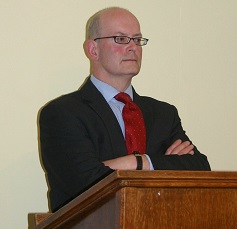
Anthony O’Mahony is a Reader in Theology and History of Christianity at Heythrop College, University of London. He was Founding Director of the Centre for Christianity and Interreligious Dialogue and now serves as the Director of the Centre for Eastern Christianity. His publications include Christianity in the Middle East: Studies in Modern History, Politics and Theology (2008); Christian responses to Islam: Muslim-Christian relations in the modern World (2008); Christianity in the Modern Middle East (2010); Christianity and Jerusalem: Studies in Theology and Politics in the Modern Holy Land (2010); The Catholic Church in the Contemporary Middle East: Studies for The Synod of the Middle East (2010); Eastern Christianity in the Modern Middle East (2010).
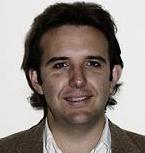
Dr. Peter Petkoff has studied law and theology in Sofia, Leeds, Oxford and Rome and his research interests are in the area of law and religion, EC Law, Intellectual Property and Comparative and International Law. His academic appointments include working on research projects at Oxford University (European Company Law and Arms Exports), Exeter University (Comparative European Family Law) and Bristol University (Changing Nature of Religious Rights Under International Law), a visiting fellowship at the Stephan Kuttner Institute of Medieval Canon Law and the Leopold-Wenger-Institute for Legal History at Ludwig-Maximilians-University Munich and teaching positions at Bristol, Oxford and Buckingham. He has taught EU Law, International law and Intellectual Property, Canon law and Islamic Law. Dr. Petkoff is a honorary fellow of the Centre for the Study of Law and Religion at the University of Bristol, a Fellow of the Centre for Christianity and Culture at Regent’s Park College, Oxford, a Secretary of the Oxford Society for Law and Religion and a convener of the Oxford Colloquium for Law and Religion, a board member of the academic think-tank‘Focus on Freedom of Religion or Belief’ which studies the dynamics of freedom of religion or belief discourse within the context of the international institutions. Dr. Petkoff is also a board member of the research network ‘Church, Law and Society of the Middle Ages’ and a convener of Eastern Canon Law panels at the International Medieval Congress at Leeds. He is currently engaged in research projects which study the coexistence of civic and religious legal systems on national, regional and international level and the formation of Christian, Jewish and Islamic legal harmonisations in the twelfth and the thirteenth centuries.
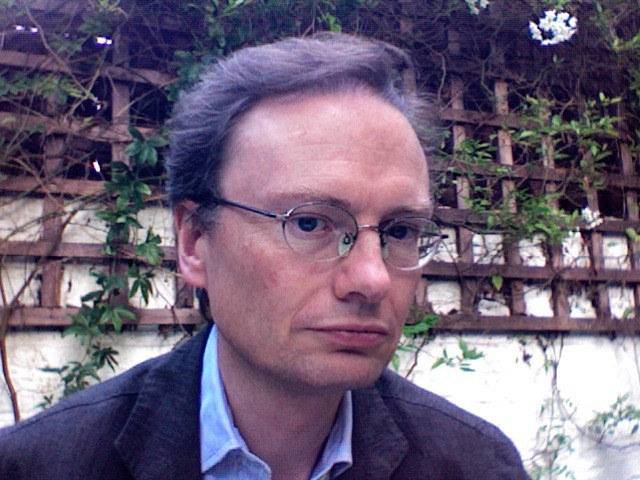
Professor Thomas Pink read history and philosophy at Cambridge, where he also received his PhD. After working for four years in London and New York for a City merchant bank, he returned to philosophy in 1990 as a Research Fellow of Churchill College, Cambridge. He then lectured at Sheffield University prior to moving to King's in 1996.
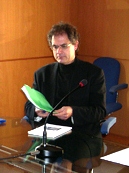
Yuri Stoyanov obtained his PhD in Combined Historical/Religious Studies from the University of London (The Warburg Institute). He is based at the Department of the Near and Middle East, School of Oriental and African Studies, University of London and is currently a Senior Fellow at the Albright Institute of Archaeological Research, Jerusalem and a CBRL Senior Visiting Fellow at the Kenyon Institute, Jerusalem His past assignments include Oxford and Wingate fellowships, British Academy awards, etc.; he is on the editorial board of several international academic journals and was Director of the Kenyon Institute (formerly the British School of Archaeology) in Jerusalem). He has lectured and published widely on various facets of the interaction between Zoroastrianism, Judaism, Christianity and Islam and their significance for certain far-reaching contemporary religio-political attitudes and developments.
His publications include English-language books such as The Hidden Tradition in Europe (Penguin, London, 1994), The Other God (Yale UP, London & New York, 2000), Defenders and Enemies of the True Cross (Austrian Academy of Sciences Press, Vienna, 2011) as well as assistant editor of Christian Dualist Heresies in the Byzantine World c.650-c.1450 (Manchester UP, Manchester & New York, 1998).
Since 2000 he has worked on a number of research projects (supported by British and Italian academic institutions and involving wide-ranging field work) focused on the status of religious sites and cultural/archaeological reserve areas as well as the history and current situation of religious sectarian groups and minorities in the Eastern Mediterranean, the Middle East and Central Asia.
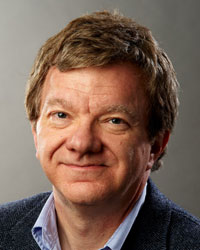
Scott M. Thomas lectures in the politics of developing countries and international relations at the University of Bath, United Kingdom, and is a research fellow in the Centre for Christianity and Interreligious Dialgoue, Heythrop College, University of London. He is a contributing editor to The Review of Faith & International Affairs, and on the editorial board of Politics, Religion & Ideology. He is most recently written, ‘St. Francis and Islam: A Critical Appraisal for Contemporary Muslim-Christian Relations, Middle East Politics, and International Relations,’ ARAM Periodical (Society for Syro-Mesopotamian Studies), in a special issue on ‘Christian Encounter with Islam and Theological Thought,’ (Peeters Publishers, Leuven, Belgium). He has also written ‘A Globalized God: Religion’s Growing Influence in International Affairs,’ Foreign Affairs (Council on Foreign Relations, New York), 89, 6 (2010), and “Living Critically and ‘Living Faithfully’ in a Global Age: Justice, Emancipation, and the Political Theology of International Relations,” Millennium: journal of international studies (London School of Economic), 39, 2 (2010). “Isaiah's Vision of Human Security: Virtue-Ethics and International Politics in the Ancient Near East,” in Raymond Cohen and Raymond Westbrook (eds.), Swords into Plowshares: Isaiah’s Vision of Peace in Biblical and Modern International Relations (New York: Palgrave, 2008), He has written the widely influence book, The Global Resurgence of Religion and the Transformation of International Relations, Foreword by Desmond Tutu (Palgrave, 2005).
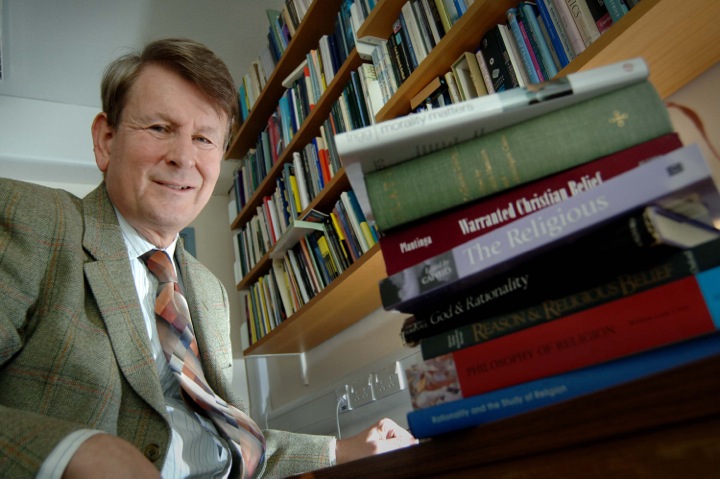
Roger Trigg is Emeritus Professor of Philosophy at the University of Warwick, and Senior Research Fellow at the Ian Ramsey Centre, University of Oxford. He is an Associate Scholar for the Religious Freedom Project at the Berkley Center, Georgetown University, Washington D.C. The author of many philosophy books, his most recent are 'Religion in Public Life', Oxford University Press, 2007 and 'Equality, Freedom and Religion', Oxford University Press, 2012. His 'Religious Diversity: Philosophical and Political Dimensions' will be published in 2014 by Cambridge University Press. From 2008-10 he was President of the European Society for Philosophy of Religion.
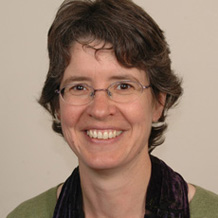
Professor Lucy Vickers studied law at Queens' College, Cambridge, and qualified as a solicitor before joining the Law Department at Oxford Brookes University. Her main research area is the protection of human rights within the workplace. A particular focus is religious discrimination at work. In addition she works on freedom of speech at work, including protection for whistleblowing, and the right to freedom of speech under the European Convention on Human Rights. She also researches on the law on sexual and racial harassment at work, in particular the legal obligations on employers to protect employees from harassment.
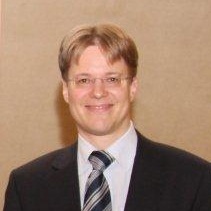
Michael Wiener works in the Office of the United Nations High Commissioner for Human Rights. He was also one of the experts who participated in the consultations that drafted the Camden Principles on Freedom of Expression and Equality. His research interests in international human rights law include freedom of religion or belief, freedom of expression, and the prohibition of any advocacy of national, racial or religious hatred that constitutes incitement to discrimination, hostility or violence. He is currently also a visiting fellow at Kellogg College, University of Oxford.
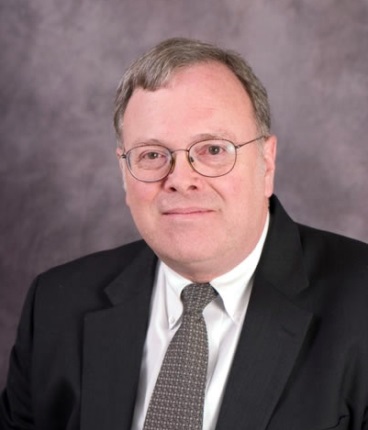
W. Cole Durham, Jr., is Director of the International Center for Law and Religion Studies, a position he has held since the Center was officially organized on January 1, 2000. A graduate of Harvard College and Harvard Law School, where he was a Note Editor of the Harvard Law Review and Managing Editor of the Harvard International Law Journal, Professor Cole Durham has been heavily involved in comparative law scholarship, with a special emphasis on comparative constitutional law. He is currently the President of the International Consortium for Law and Religion Studies (ICLARS), based in Milan, Italy, and a Co-Editor-in-Chief of the Oxford Journal of Law and Religion. From 1989 to 1994, he served as the Secretary of the American Society of Comparative Law, and he is also an Associate Member of the International Academy of Comparative Law in Paris—the premier academic organization at the global level in comparative law. He is serving as a General Rapporteur for the topic "Religion and the Secular State" at the 18th International Congress of Comparative Law held in July 2010. He has also served in earlier years as Chair both of the Comparative Law Section and the Law and Religion Section of the American Association of Law Schools.
Professor Durham has taught at the Brigham Young University Law School since 1976, and he was awarded the honorary designation of University Professor there in the fall of 1999. Since 1994, he has also been a Recurring Visiting Professor of Law at Central European University in Budapest, where he teaches comparative constitutional law to students from throughout Eastern Europe, and increasingly from Asia and Africa as well. He has also been a guest professor in Gutenberg University in Mainz, Germany and at the University of Vienna. In January, 2009, he was awarded the International First Freedom Award by the First Freedom Center in Richmond, Virginia.
Professor Durham has been involved in constitutional drafting projects in Nepal (2011 and 2009), Thailand (2007), and Iraq (2005-06). He has worked on constitutional and statutory drafting projects throughout Eastern Europe and in most former Soviet bloc countries. He has been particularly active in matters involving relations between religion and the state, though he also has extensive experience with comparative criminal law and non-profit law. He served for a number of years as a member of the OSCE/ODIHR’s Advisory Council on Freedom of Religion or Belief, and he is a Vice President of the International Academy for Freedom of Religion and Belief. He serves as a board member of church-state centers at DePaul and Baylor Universities, of the International Religious Liberty Association, and of the International Advisory Board of the Oslo Coalition on Freedom of Religion or Belief. He has also been active in work on laws governing the civil society sector, having served as Chairman of the Board of the International Center for Not-for-Profit Law in Washington, D.C. (and as a member of its board for many years).
Professor Durham’s involvement in these organizations has enabled him to play an active role in advising governments throughout much of the former socialist bloc on constitutional provisions and legislation dealing with criminal law and procedure, court structure, general constitutional issues, and the law of associations, including particularly religious associations. He has helped organize technical assistance to law reform projects and comparative law conferences in countries around the world. This has included consultations on constitutional issues and laws in Albania, Argentina, Armenia, Azerbaijan, Bosnia and Herzegovina, Bulgaria, Chile, China, Croatia, the Czech Republic, Dominican Republic, Estonia, France, Georgia, Hungary, Indonesia, Iraq, Kazakhstan, Kyrgyzstan, Latvia, Lithuania, Macedonia, Moldova, Mexico, Nepal, Nigeria, Peru, Romania, Russia, Rwanda, Samoa, Serbia, Slovakia, Slovenia, Tajikistan, Thailand, Ukraine, and Vietnam.
In the U.S., Professor Durham has organized a series of conferences on comparative law issues at Brigham Young University and at other institutions in the United States which have brought some 800 scholars and experts dealing with comparative constitutional law themes from more than 100 countries to the United States. He is a co-author with Brett Scharffs of Religion and the Law: National, International and Comparative Perspectives (Aspen/Wolters Kluwer 2010), and with William Bassett and Robert Smith of Religious Organizations of the Law, an annually updated treatise published by Thompson Reuters/West. He is the editor (with Noel Reynolds) of Religious Liberty in Western Thought, and (with Silvio Ferrari) Law and Religion in Post-Communist Europe. He is also a co-editor of Facilitating Freedom of Religion or Belief: A Deskbook, which was published in 2004 by Brill under the Martinus Nijhoff imprint, and also of Religious Organizations in the United States, published in 2006 by Carolina Academic Press. He has authored numerous law review articles dealing with religious liberty and other comparative law themes.
Professor Durham has testified before the U.S. Congress in hearings on religious intolerance in Europe and on the Religious Liberty Protection Act. In 2010 he testified via teleconference before the Indonesia Constitutional Court concerning the constitutionality of the Indonesian blasphemy law.

Editor-in-chief, Columbia Law Review. Before joining the Columbia faculty in 1965, was law clerk to U.S. Supreme Court Justice John M. Harlan and subsequently spent part of a summer as an attorney with the Lawyers Committee for Civil Rights in Jackson, Mississippi. From 1966 to 1969, served on the Civil Rights Committee of the Association of the Bar of the City of New York. Member of the Due Process Committee of the American Civil Liberties Union, 1969-71. Deputy U.S. solicitor general, 1971-72. Fellow of the American Council of Learned Societies. Visiting fellow at Clare Hall, Cambridge, 1972-73. Visiting fellow, All Souls College, Oxford, 1979. Fellow, American Academy of Arts and Sciences. Member, American Philosophical Society. President, American Society for Political and Legal Philosophy, 1991-93. Main interests are in constitutional law and jurisprudence, with special emphasis on church and state, freedom of speech, legal interpretation, and criminal responsibility.
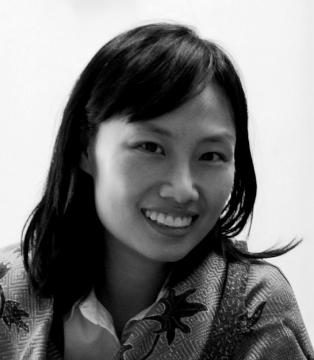
Angela Wu Howard is the International Legal Fellow at the Becket Institute, an academic project of the Becket Fund. She has testified, lectured, and worked on religious freedom cases before United Nations tribunals, the U.S. Supreme Court, the European Court of Human Rights, and domestic courts in countries around the world. She has been published and quoted by NPR, The Wall Street Journal, Far Eastern Economic Review, Islam Online, Maclean's Magazine, Agence France Presse, The New York Times, and the Council on Foreign Relations. She serves on the governing Bureau of the United Nations NGO Committee on Freedom of Religion or Belief.
Angela is currently based at the University of Oxford, where she is researching legal philosophy applied to religious freedom.
Angela obtained a J.D., cum laude, from Harvard Law School in Cambridge, MA. While at Harvard, she edited the Civil Rights/Civil Liberties Law Review and the Harvard Human Rights Journal, ran the Battered Women’s Advocacy Project, and worked for the Department of Justice's Civil Rights Division Appellate Section. Angela's B.A. was from Northwestern University, where she graduated with honors in Modern Intellectual History for a thesis on memory, violence, and language in Mao's Cultural Revolution. Angela was a Fulbright Fellow in Brussels, Belgium, where she obtained a D.E.S. in European Law from the Université Libre de Bruxelles.
She clerked in the federal circuit courts of appeal for the Honorable William W Schwarzer in San Francisco, worked for Oxfam America in Boston, and served as a negotiations consultant on civil society issues to the Organisation for Economic Co-operation and Development in Paris. She was litigating hostile corporate takeovers and political asylum cases with Cleary Gottlieb Steen & Hamilton LLP in New York when the Becket Fund called.
Angela speaks English fluently and French, Mandarin Chinese, and Taiwanese to varying degrees of competency. She enjoys dictionaries and design. In 2006 Relevant Magazine named Angela one of 9 young people "out to change the world."
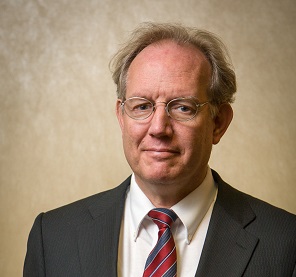
David Kirkham, Ph.D., J.D., is Senior Fellow for Comparative Law and International Policy at the BYU International Center for Law and Religion Studies, as well as an adjunct faculty member of the Law School and the BYU Department of Political Science. Prior to coming to the Law School in 2007, David served as Associate Dean and Professor of International Politics and Democratic Studies at the George C. Marshall European Center for Security Studies in Garmisch-Partenkirchen, Germany. He has also served as Director of International Plans and Programs, Director of International History, and Associate Professor of History at the United States Air Force Academy, and as a Senior Humanitarian Affairs Officer at the United Nations Office for the Coordination of Humanitarian Affairs in Geneva, Switzerland. David and his wife Judy are the parents of eight children and now make their home in Orem, Utah.
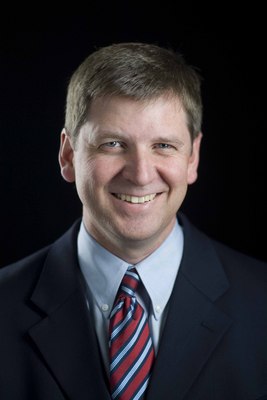
Dean Rasband joined the Law School faculty in 1995. Prior to entering academia, he served as a law clerk to Judge J. Clifford Wallace of the U.S. Court of Appeals for the Ninth Circuit and practiced law at Perkins Coie in Seattle, Washington, where his practice focused on Indian treaty litigation. Immediately prior to his appointment as dean, he was serving in university administration as the Associate Academic Vice President for Faculty.
Dean Rasband’s research and teaching has centered on public land and natural resources law and policy. He has published many articles and book chapters on these subjects and is coauthor, along with James Salzman at Duke University and Mark Squillace at the University of Colorado, of Natural Resources Law and Policy, an important casebook in the field. He has taught courses in water law, wildlife law, public lands and natural resources law, torts, and international environmental law. He has also taught as a visiting professor at Murdoch University School of Law in Perth, Australia, and as a visiting fellow at T. C. Beirne School of Law, University of Queensland in Brisbane, Australia.
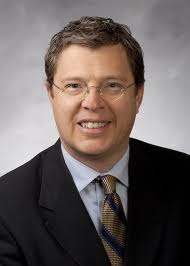
Brett G. Scharffs is Francis R. Kirkham Professor of Law at the J. Reuben Clark Law School at Brigham Young University and Associate Director of the International Center for Law and Religion Studies. His teaching and scholarly interests include comparative and international law and religion, jurisprudence and adjudication, and international business law. Professor Scharffs is a graduate of Georgetown University, where he received a B.S.B.A in international business and an M.A. in philosophy. He was a Rhodes Scholar at Oxford University, where he earned a B.Phil in philosophy. He received his J.D. from Yale Law School, where he was Senior Editor of the Yale Law Journal. Professor Scharffs was a law clerk on the U.S. Court of Appeals, D.C. Circuit, and worked as a legal assistant at the Iran-U.S. Claims Tribunal in The Hague. Before teaching at BYU, he worked as an attorney for the New York law firm, Sullivan & Cromwell. He has previously taught at Yale University and the George Washington University Law School, and is a visiting professor each year at Central European University in Budapest.
In his fifteen-year academic career, Professor Scharffs has written more than 50 articles and book chapters, and has made over 150 scholarship presentations in 20 countries. His casebook, Law and Religion: U.S., International, and Comparative Perspectives, co-written with his colleague, W. Cole Durham, Jr., was published by Aspen / WoltersKluwer in 2010, second edition in preparation.
Effective 1 July 2013, Professor Scharffs serves as Associate Dean for Academic Affairs of the J. Reuben Clark Law School, Brigham Young Young University.
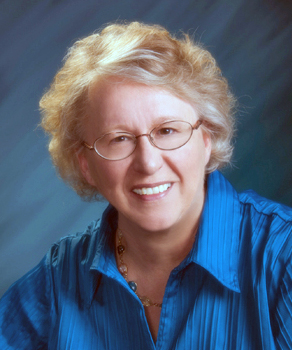
Donlu Thayer is the Managing Editor of the International Center for Law and Religion Studies, with responsibility for overseeing print and electronic publications, including creating the Center's newsletters, maintaining the Center's website as well as the websites for the Strasbourg Consortium and the Religion and Law Consortium, and producing the Headline News Digests sent daily to subscribers worldwide. She maintains the European Court of Human Rights Freedom of Religion or Belief Case Table for the Strasbourg Consortium and the online Web Supplement for the casebook Law and Religion: National, International, and Comparative Perspectives. Thayer is also a Casenote Editor for the Oxford Journal of Law and Religion.
Before joining the Center in 2009, Thayer had a long career as a teacher, writer, and editor. She worked as an editor for BYU Press and was for many years volume editor for the New World Archaeological Foundation. She taught for the Brigham Young University English Department and Honors Program intermittently during 1970–2009, courses including beginning and advanced composition, intensive reading and writing, technical writing, creative writing, and thesis writing. Most recently, she created and taught the Honors Program course Advanced Writing for Pre-Law Students. In 2009 she received the JoAnn Britsch Teaching Excellence Award.
Thayer attended Brigham Young University as a Karl G. Maeser Scholar, graduating in 1970 as co-valedictorian of the College of Humanities, magna cum laude, with a double major in French and English, a University minor in German, and secondary teaching certification. She received a master's degree in American Literature from BYU in 1972, and in 2004 she graduated from the J. Reuben Clark Law School, where she received the Faculty Award for Meritorious Service, the J. Reuben Clark Public Interest Service Award, and the Schooley Outstanding Mediator Award and was Justice of the Cowley Chapter of Pi Alpha Delta Law Fraternity International.
A certified mediator with specialized training in domestic mediation and high-risk victim offender dialogue, Thayer was for a brief time executive director of Community Dispute Resolution Services in Utah County. She is married to writer and BYU Professor Emeritus Douglas H. Thayer, and they have six children, six children-in-law, and nineteen grandchildren.
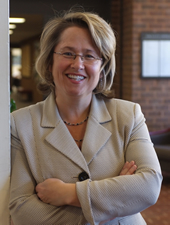
Professor Robin Fretwell Wilson, the Class of 1958 Law Alumni Professor of Law and the Law Alumni Faculty Fellow for 2011—2012, received her J.D. and B.A. degrees from the University of Virginia where, at the School of Law, she served on the Editorial Board of the Virginia Law Review. Before entering practice, she clerked for the United States Court of Appeals for the Fifth Circuit.
A specialist in Family Law and Health Law, her research and teaching interests also include Insurance and Biomedical Ethics. Professor Wilson is the editor of four volumes: Health Law and Bioethics: Cases in Context (with Sandra Johnson, Joan Krause and Richard Savor, 2009); Same-Sex Marriage and Religious Liberty: Emerging Conflicts (Rowman & Littlefield Publishers, Inc., 2008) (with Douglas Laycock and Anthony A. Picarello); Reconceiving the Family: Critique on the American Law Institute's Principles of the Law of Family Dissolution (Cambridge University Press, 2006); and the Handbook of Children, Culture & Violence (Sage Publications, 2006) (with Nancy Dowd & Dorothy G. Singer). Her articles have appeared in the Cornell Law Review, the Emory Law Journal, the North Carolina Law Review, and the San Diego Law Review, as well as in numerous peer-reviewed journals.
Named "Professor of the Year" by the Women Law Student Organization in 2008, Prof. Wilson has twice received the faculty award for outstanding scholarship. She is a member of the American Law Institute, and in 2010 was ranked among the Top 10 Family Law Scholars in the United States in Scholarly Impact. In 2010, Professor Wilson delivered the Sidney and Walter Siben Distinguished Professorship Lecture at Hofstra University School of Law and presented in the Distinguished Speaker Series at Saint Louis University's Center for Health Law Studies.
Professor Wilson's work has been featured in the New York Times, Wall Street Journal, National Public Radio's All Things Considered, Washington Post, Los Angeles Times, U.S. News and World Report, ABA Journal, the Chronicle of Higher Education, Chicago Tribune, CNN Headline News, Good Morning America, ABC News, CBS News, the Philadelphia Inquirer, and Essence Magazine among others. Professor Wilson is the past Chair of the Section on Family and Juvenile Law of the Association of American Law Schools (AALS) and of the AALS' Section on Law, Medicine & Healthcare. Professor Wilson has presented her research in China, Israel, Qatar, the Netherlands, Italy, England, Wales, Poland, Serbia, Japan, Canada, Norway, Denmark, Australia, New Zealand, and France, as well as throughout the United States.
